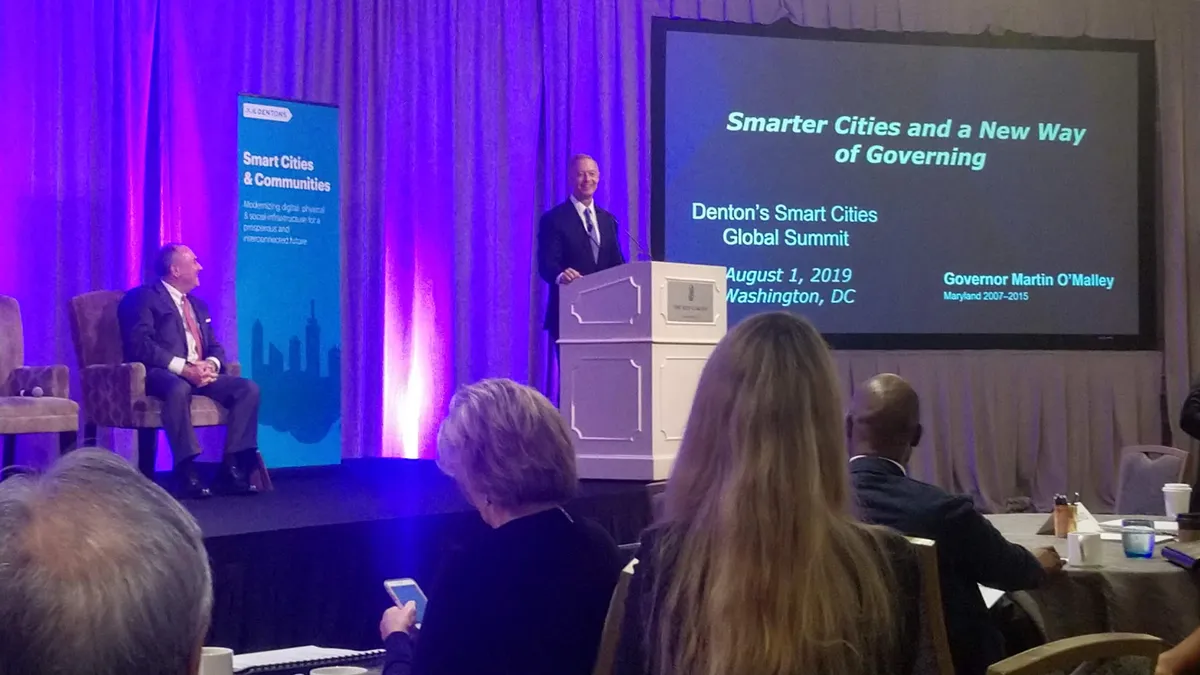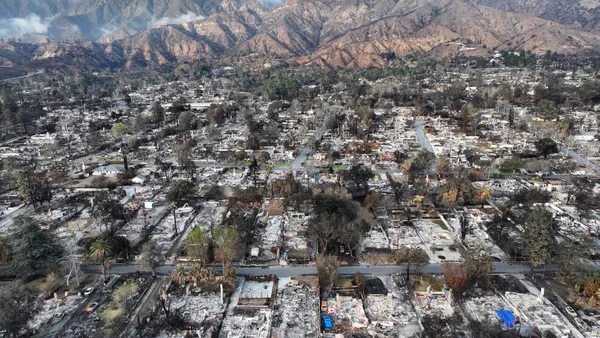Dive Brief:
- Cities must "lift up the leaders" by encouraging more risk-taking and innovation in government, former Maryland Gov. Martin O’Malley said in a speech at the Dentons Smart Cities and Communities Summit in Washington, DC on Thursday.
- O’Malley said cities are at the "cutting edge of a new way of governing." That new way of doing things is rising from smarter cities, he said, meaning governance is now more entrepreneurial, collaborative, performance-measured and interactive.
- A fear of failure can be paralyzing in government, O’Malley said, and means that some mayors and city leaders are reluctant to be the first to try something. "In Silicon Valley, you get rewarded for taking risks and failing," he said. "In government, you get fired for taking risks and failing. It leads to this phenomenon where most mayors, even the most innovative, want to be the best at doing something second. That's how they de-risk a new thing: they ask where it's worked someplace else.”
Dive Insight:
During his speech, O’Malley touted his work as mayor of Baltimore, from 1999 to 2007, in introducing the use of data and advanced metrics to keep track of crime response, city-owned vehicles and pothole maintenance. With Baltimore recently in the news after criticism from President Trump, the city’s former leader was clearly eager to tout the progress that has been made, although he acknowledged that there is plenty still to be done.
He noted that each city is different when it comes to getting smarter, has different needs and will operate on a different timeline from others. But, he said, by encouraging leaders to embrace new ways of doing things and think differently, every city is capable of evolving.
O’Malley said there must also be a commitment to transparency and openness, especially when it comes to introducing a new technology. He cited the example of ShotSpotter, a technology that uses sensors to detect gunshots in cities like Baltimore and Louisville, KY, but has come under fire for undermining people’s right to privacy.
"We have to be able to show our people how we're doing, what we're doing," O’Malley said. "Openness and transparency is the new ante in the game of public trust."
That transparency and sharing of best practices represents a paradigm shift from how things have been done in the past, and O’Malley said it not only holds leaders accountable but also shows how many more people have become invested in how their local government works and what it is doing in their name with their money.
O’Malley said that is a "big shift from that 250-year political wisdom that says, 'Leaders shouldn't share information. Do not share information unless you're forced to share information,' to this new shift where leaders have to share information, they have to share it before their critics, and they have to share it in a greater context."











